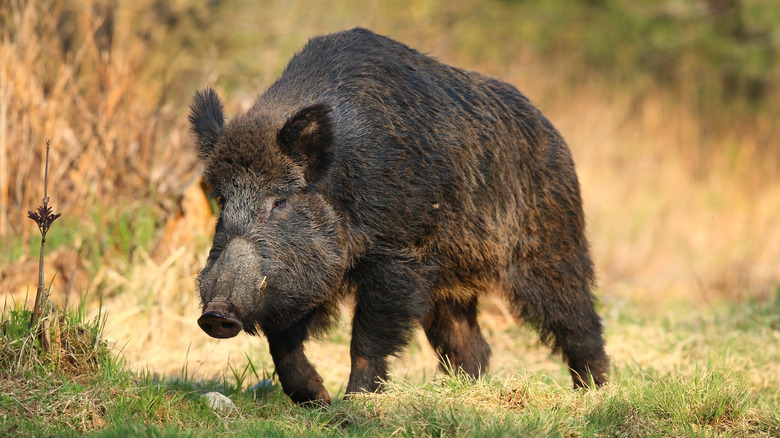How One Pig Caused An Entire War
The incitement of war is typically not a light subject, often relating to the acquisition of resources, a deep-seated desire to spread an ideology, or the defense against either of these. Sometimes though, a war can just as easily be started over an incredibly arbitrary issue. The United States and the United Kingdom found this out the hard way in 1859. In the preceding decade, the two countries had struggled to reach an acceptable border between the U.S. and Canada.
The San Juan islands exist within a strait between the borders of British Columbia and Washington state, and both America and Britain laid claim to them. As they lay in political limbo, the British Hudson Bay company and American settlers both decided to colonize them. Tensions flared as each party expected their respective governments would back them up. The situation boiled over in June when an American settler shot one of the Hudson Bay company's pigs, as it had entered (what he recognized as) his property and started eating his potatoes (via National Park Service).
The ridiculousness of war over a pig was not lost on either side
In response to British threats of arresting the Americans on the islands, U.S. army troops were sent to ensure the latter's safety. In response, two Royal Navy vessels and a number of marines were sent at the request of local authorities. The number of troops on both sides rapidly increased, all without the knowledge of their own governments (via The Canadian Encyclopedia). Once they learned of the situation, the federal government in Washington, D.C., scrambled to keep the conflict from becoming an actual war. Meanwhile, the bizarre dynamic included British ships conducting live fire drills and British and American officers attending a local church together.
While under orders to protect their own country's interests, both sides did what they could to avoid actual combat from materializing. Rear Admiral Baynes, the highest ranking British officer present, made this much very clear in his dispatches. When officials from the capital arrived, both sides greatly reduced their military presence on the archipelago and agreed to joint occupation for 12 years (via HistoryLink). In their search for an intermediary to judge who should gain possession of them, they found one in the form of Kaiser Wilhelm I. In 1871, the same year his title of Kaiser and the German Empire itself came into existence, he officially ended the Pig War in favor of the U.S. claim.

